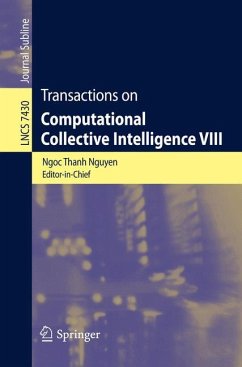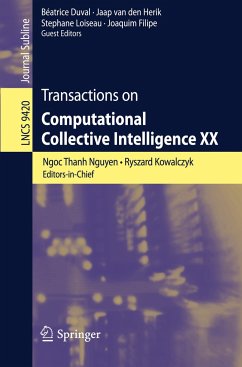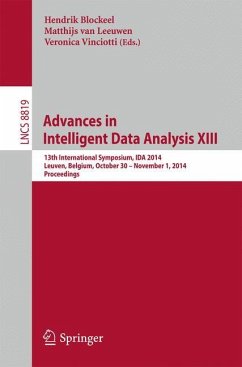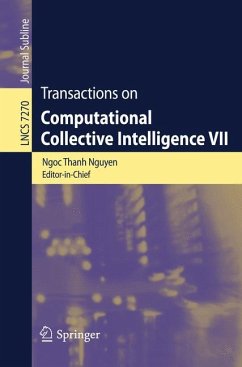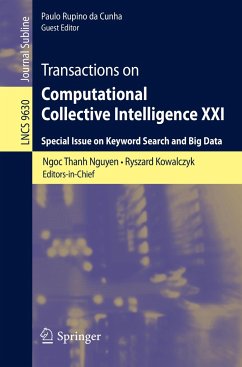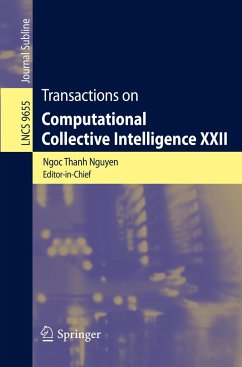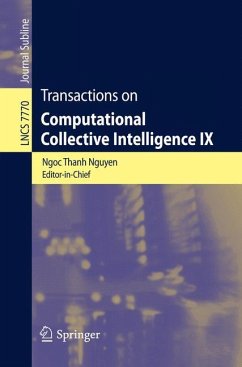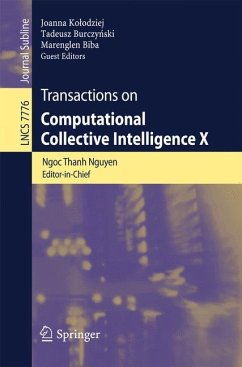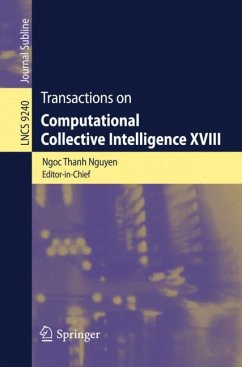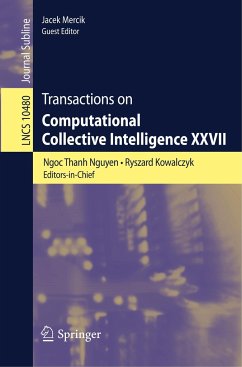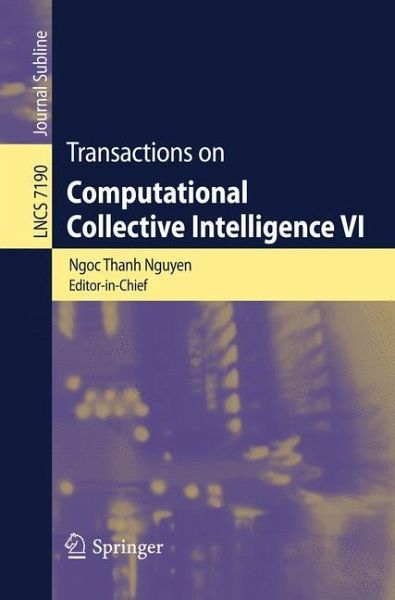
Transactions on Computational Collective Intelligence VI

PAYBACK Punkte
19 °P sammeln!
These Transactions publish research in computer-based methods of computational collective intelligence (CCI) and their applications in a wide range of fields such as the Semantic Web, social networks and multiagent systems. TCCI strives to cover new methodological, theoretical and practical aspects of CCI understood as the form of intelligence that emerges from the collaboration and competition of many individuals (artificial and/or natural). The application of multiple computational intelligence technologies such as fuzzy systems, evolutionary computation, neural systems, consensus theory, et...
These Transactions publish research in computer-based methods of computational collective intelligence (CCI) and their applications in a wide range of fields such as the Semantic Web, social networks and multiagent systems. TCCI strives to cover new methodological, theoretical and practical aspects of CCI understood as the form of intelligence that emerges from the collaboration and competition of many individuals (artificial and/or natural). The application of multiple computational intelligence technologies such as fuzzy systems, evolutionary computation, neural systems, consensus theory, etc., aims to support human and other collective intelligence and to create new forms of CCI in natural and/or artificial systems.
This sixth issue contains a collection of ten carefully selected and thoroughly revised contributions. The articles deal with the following topics: pattern recognition and classification of stochastically episodic events, Semantic Web agents, cognitive and affective empathic understanding of other agents, multiagent based simulation, distribution and maintenance of knowledge represented by complementary graphs, distributed mobile interactive documents in knowledge-based organizations, adversarial teams in dynamic environment, bounded rational telecommunication operators, reasoning about time-dependent multiagents, and predictive models for financial time series by using agent-based simulations.
This sixth issue contains a collection of ten carefully selected and thoroughly revised contributions. The articles deal with the following topics: pattern recognition and classification of stochastically episodic events, Semantic Web agents, cognitive and affective empathic understanding of other agents, multiagent based simulation, distribution and maintenance of knowledge represented by complementary graphs, distributed mobile interactive documents in knowledge-based organizations, adversarial teams in dynamic environment, bounded rational telecommunication operators, reasoning about time-dependent multiagents, and predictive models for financial time series by using agent-based simulations.





